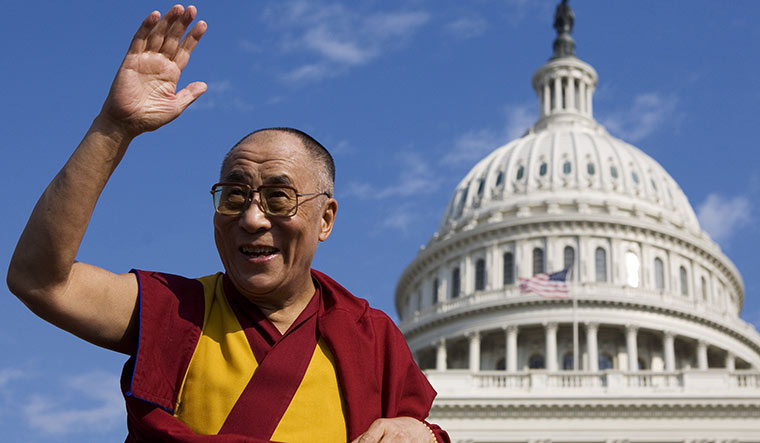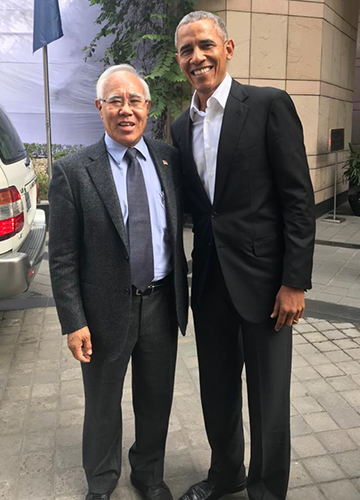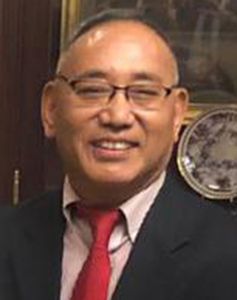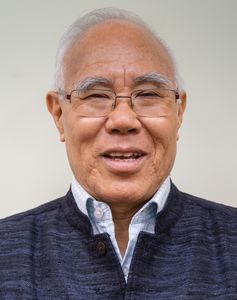Relations between world powers US and China have entered a turbulent phase in 2021. If Beijing was thinking that it has cornered New Delhi with continued aggression on the Line of Actual Control since April 2020, the Dalai Lama has proved that China will first have to deal with Tibet before it can cross the Himalayas. Chinese President Xi Jinping’s concerns have been escalating after US President Joe Biden expressed his desire to meet the Dalai Lama and the US Senate passed the Tibet Policy and Support Act (TPSA).
In September 2020, Biden criticised his predecessor, Donald Trump, for focussing on “empty trade deals” with Beijing and protecting his “very good friendship” with Xi.
“It is disgraceful, though not surprising, that Trump is the first American president in three decades who has not met or spoken with His Holiness the Dalai Lama,” said Biden. As senator, Biden had met the Dalai Lama in 2003 during a meeting of the Senate Committee on Foreign Relations. Now, both are looking forward to a renewed engagement.
Biden said he would meet the Dalai Lama, appoint a new special coordinator for Tibetan issues, and insist that the Chinese government restore access to Tibet for U.S. citizens, including diplomats and journalists.
For India, this is good news. “China is afraid of the Dalai Lama,” said a senior government official. “For Beijing, his stature is of a king and not a saint. They want to be sure the next Dalai Lama will be a Chinese puppet.”
With the US becoming the biggest stumbling block in China’s reincarnation dream, both literally and figuratively, the Dragon is breathing heavily.
On December 27, 2020, Trump signed the TPSA, placing restrictions on new Chinese consulates in America until a US consulate has been established in Lhasa. The law also mandates the US government to slap sanctions, including travel bans on senior Chinese officials who are “responsible, complicit or have directly or indirectly engaged in the identification or installation of a candidate chosen by China as the future 15th Dalai Lama of Tibetan Buddhism”.
To Beijing’s horror, a copy of the bill had been hand-delivered to the Dalai Lama at his exile home in Dharamshala on October 1, 2019. Matteo Mecacci, president of International Campaign for Tibet (ICT), led a Senate staff delegation to Dharamshala. “We are making some progress in the US Congress in particular,” Mecacci informed the Dalai Lama.
Although Tibetan Americans are a small community, numbering around 27,000, their struggle against China has been recognised and supported by the US.
“The Dalai Lama has been travelling around the world for almost five decades, meeting different people—academicians, public representatives and government leaders—which has created a tremendous amount of goodwill for the people of Tibet and also made the public more aware of the actual situation in Tibet and the facts relating to the issue, contrary to the propaganda of the Chinese government,” said Tempa Tsering, board member of the ICT. “Many other governments will take heed of what has happened in the USA.”
Speaking to THE WEEK from Washington, Ngodup Tsering, representative of the Dalai Lama in North America, said Tibet has many friends in Capitol Hill. “I always say next to India, the US is the most generous country for Tibet,” he said.
He explained that the idea for updating the Tibet Policy Act (2002) was tossed around for some time during the annual Tibet strategy meetings led by Speaker Nancy Pelosi. Then in 2018, by passing the Reciprocal Access to Tibet Act, the US Congress took direct aim at China’s unfair policy of restricting America’s access to Tibet even though Chinese citizens are free to travel throughout the US. This further re-energised Tibetans’ support in the US Congress, which culminated in the landmark Tibet policy of the United States. “The US Congress has passed several legislations and resolutions... supporting the ‘middle-way’ policy to resolve the Sino-Tibet conflict,” said Ngodup.
It has been a decade since the Dalai Lama devolved his “political authority”, paving way for a democratically elected government-in-exile that would pursue the cause of Tibet. In March 2011, Lobsang Sangay became the first president (Sikyong) of the Central Tibetan Administration (CTA) for a five-year term; the US citizen was re-elected in 2016. Predictably enough, he has been directly involved in the framing of the TPSA. In November 2020, he became the first Sikyong to be formally invited to the US State Department. His second term ends this year, and cannot contest elections a third time. This paves way for the election of a new Tibetan government in exile.
The next five years will be crucial. A close aide of the Dalai Lama said that even though the 85-year-old spiritual leader has conveyed that he will live for over 100 years, his advanced age is a matter of concern. When the Dalai Lama gave up his political charge, he based his decision on his desire to only pursue a spiritual role, but the move was also seen as an attempt to prepare the coming generations for a future without him. This future has a belligerent China showing outward aggression on India’s northern borders, which is being matched internally by increasing repression in regions like Tibet, Xinjiang and Hong Kong.
Ngodup says that though the border aggression was unfortunate, it was to happen “sooner or later”. “The Chinese Communist Party is an entity never to be trusted,” he said. “Tibetans have lived under the CCP for seven decades now.”
On China interfering with the reincarnation of the Dalai Lama, Tempa says it is not just a religious issue but a more complex one because the current Dalai Lama is an international icon with wide support. “In any case, Buddhists will neither recognise nor accept any interference in a religious matter by a communist regime that considers religion as poison,” he said.
India’s multiculturalism should be reason enough for it to be more forthright in supporting the cause of the Tibetans, said Tempa. “Wherever the Dalai Lama goes, he is always talking of India’s history and culture of ahimsa and karuna. I hope that the Indian government will express their views on reincarnation... and on the larger issue of Tibet,” he said.
Claude Arpi, well-known author and Tibetologist, said that the new Sikyong will have an important role to play, particularly in coordinating the next moves with Delhi.
Currently, the Tibetans are in the two-phase process of elections that will conclude in April. The front runners for the post of Sikyong are Penpa Tsering, former speaker of the Tibetan parliament in exile, and Kelsang Dorjee Aukatsang (Kaydor). Both of them are former representatives of the Dalai Lama in Washington.
While Penpa is leading by a huge margin, Kelsang is second, closely followed by Dolma Gyari, former deputy speaker of the parliament in exile—the highest position held by a woman in the Tibetan government.
Nearly 80,000 Tibetan voters around the world, including 55,000 in India, Nepal and Bhutan, will elect their Sikyong in April. Insiders said that Covid-19 and the gradual migration of Tibetans to other countries has brought down the number of voters in India this time. But the recent developments in the US in support of the Dalai Lama have invigorated their spirit and also raised their hopes of continued support from the Indian government.
Speaking to THE WEEK, Penpa expressed concern about the belligerent moves by the Chinese army on India’s borders. “As Tibetans, we do not have a diverse view on this point,” he said. “I am sure policies are being reviewed by all sides. I would expect India to be more assertive.”
Kelsang said it was time India upgrades its policy towards Tibetans and Tibet by making the resolution of Tibet a core issue in its relationship with China. He also added that a tangible way of acknowledging the Dalai Lama’s support for India would be to confer on him the Bharat Ratna.
Dolma Gyari said there is a growing public sentiment in India that the government should take a stronger stand in recognising Tibet as an occupied nation. “India does not share a border with China—India and Tibet share a boundary,” she said. “Tibet is an occupied nation, but the non-acknowledgement of this fact is to a large extent the reason why the border talks between India and China have been so unsuccessful till date.”
Whether New Delhi reacts or not, it certainly cannot dismiss the fact that it is drawn into a geopolitical issue that has put the US and China at loggerheads.
Srikanth Kondapalli, a leading Chinese expert, said that New Delhi must be cautious not to think the Dragon will be tamed by the US alone. “While the threat of sanctions of the US may not work, given the rising clout of China and its full occupation of Tibet, China’s image could take a beating if it intervenes in the religious processes of the Tibetans in the future,” he said. “Already its restrictions in Tibet have led to more than 150 people committing self-immolation and a loss of face for Beijing.”
The choices are narrowing and the time may have arrived for India to start preparing for the future. With the US expressing its intention to open a consulate general in Lhasa, Arpi said all eyes are on India which used to have a full-fledged diplomatic mission in Lhasa till 1952 and a consulate general in Tibet till December 1962. “One can hope that in the following years, Delhi will put pressure on China to reopen this mission in Tibet, which is vital if Beijing is interested to reopen the Ancient Silk Roads through the Himalayas,” said Arpi.
What New Delhi may also need to spell out in unambiguous terms to the Dalai Lama is that he will be a most honoured guest, once again, if he decides to “come back” to India as the 15th Dalai Lama.





